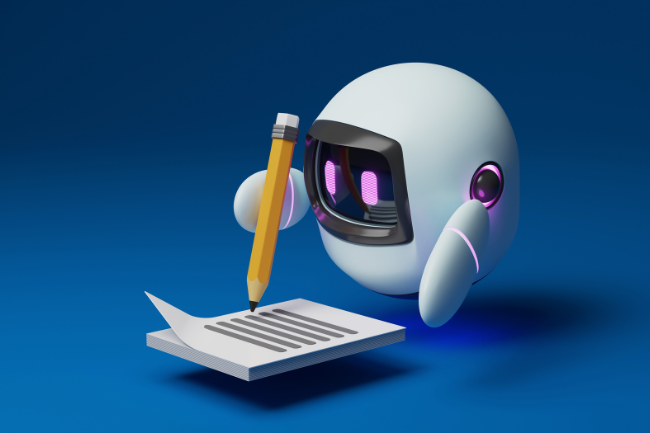I wrote a poem the other day. Well, actually, I didn’t write it, it was created by an artificial intelligence (AI) chatbot called ChatGPT. I was curious because I’ve been hearing a lot about it in the news lately, so I signed up to give it a try. Some teachers are concerned students will use it to write essay papers or solve math problems, and it will be hard to detect if they or the chatbot did their homework.
I suspect each generation had ways of fudging their homework, but now ChatGPT makes it easier to do. As kids, we would flip through the school library’s collection of encyclopedias, trying to figure out how much we could paraphrase in our research papers without our teachers getting suspicious that we had copied a big chunk of it down. I skimmed Cliffs Notes of “The Odyssey” in college to better understand what I was supposed to read but didn’t, so I could pass the quiz on what seemed like a really boring book. Sometimes, students paid friends to write papers or do their math assignments for them.
I can understand worrying about students letting chatbots do their homework. The point of going to school is to learn how to do things. I remember the debate over using calculators in math class as a kid. Now we throw everything into spreadsheets or search Google for the answer. The only calculator I use is on my phone when I’m trying to split a restaurant bill between friends.
ChatGPT can answer questions, write papers, or compose a mediocre poem by simply typing in the phrase “write a poem about Arizona.” It gave me four stanzas in under 30 seconds, starting with this one:
“Arizona, land of red and gold,
Where deserts stretch and mountains bold,
Canyons deep, and skies so blue,
A sight to see, a view to pursue.”
While it is certainly not the worst poem I’ve ever read, I’m not sure it would have earned me more than a B- in English class. I changed it up and asked, “if you could only eat one food for the rest of your life, what would be the best choice?”
It typed back: “As an AI, I do not have physical needs or preferences, but assuming if I could eat, I would choose a food that is nutritionally balanced and provides a wide range of essential vitamins and minerals. One example could be sweet potatoes.”
It typed out many ways they could be prepared. I tried imagining eating only sweet potatoes for the rest of my life. The chatbot and I both agreed that it wasn’t recommended.
I asked it when the necktie was invented (17th century in Croatia) and why people still wore them (fashion accessory and symbol of formal dress). And if time travel was possible, what would be the best year to go back to visit? (It depends on your interests.) I asked if newspaper columnists would ever cease to exist. I won’t tell you the answer to that question.
I do think whenever a new technology is launched, we imagine how the tool can be misused. Artificial intelligence and the idea of robots becoming smarter than humans is a common sci-fi movie theme. Way back in 1968, the HAL 9000 robot in “2001: A Space Odyssey” calmly refused to follow the human crew’s orders, programmed for a secret mission they didn’t know anything about. The scene was terrifying yet simple, a computer refusing to do what the human wanted it to do, with potentially deadly consequences for the humans.
I hope we can find the balance in the years ahead. Tools like the Internet and cell phones have changed our world in ways we couldn’t imagine when they first arrived. We can search for almost anything online and find it, learn about it, or buy it. We can work remotely and video chat with friends all over the world. We can’t put the genie back in the bottle, so we have to make sure to think carefully about the wishes we make. Maybe I’ll ask the chatbot to write my next column. Or maybe it just did.

